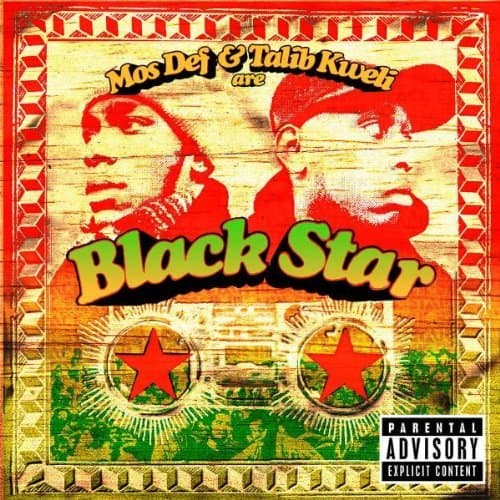
On this day in hip hop history, 27 years ago, Mos Def and Talib Kweli joined forces to release their iconic debut album Mos Def & Talib Kweli Are Black Star on Rawkus Records — a landmark project that redefined the possibilities of lyricism, consciousness, and collaboration in the late ’90s.
Emerging during a time when commercial rap dominated radio waves, Black Star offered a powerful alternative rooted in thought-provoking messages, Afrocentric pride, and sharp lyricism. Mos Def and Talib Kweli, already respected voices in New York’s underground, combined their poetic storytelling and socially conscious perspectives to create a body of work that elevated the art form. Their chemistry was undeniable — Mos brought a soulful, melodic flow while Kweli delivered intricate, rapid-fire verses, resulting in a perfect balance that pushed lyrical boundaries and challenged hip hop’s mainstream direction.
The album featured timeless tracks like “Definition” and “RE: Definition,” where the duo boldly declared their mission to “stop killin’ n****s and start killin’ beats,” addressing violence in the culture and calling for a return to hip hop’s roots. “Brown Skin Lady” celebrated Black womanhood with poetic reverence, while “Thieves in the Night” — inspired by Toni Morrison’s The Bluest Eye — explored identity, oppression, and resilience with profound depth.
Produced by key figures like Hi-Tek and Da Beatminerz, the album’s sound was a refreshing blend of dusty boom-bap drums, jazz samples, and soulful textures that perfectly complemented the duo’s lyrical weight. Though it peaked modestly on the charts, Black Star was critically acclaimed and quickly became a cornerstone of the late-’90s underground renaissance, standing alongside releases from Common, The Roots, and Company Flow in reshaping the sound and soul of conscious rap.
Nearly three decades later, Black Star remains one of hip hop’s most celebrated collaborations — a timeless testament to the power of words, unity, and purpose. It not only elevated Mos Def and Talib Kweli into hip hop’s elite but also set a new standard for what rap could achieve when artistry and activism walk hand in hand.
Salute to Mos and Kweli for delivering a masterpiece that still resonates 27 years later.
